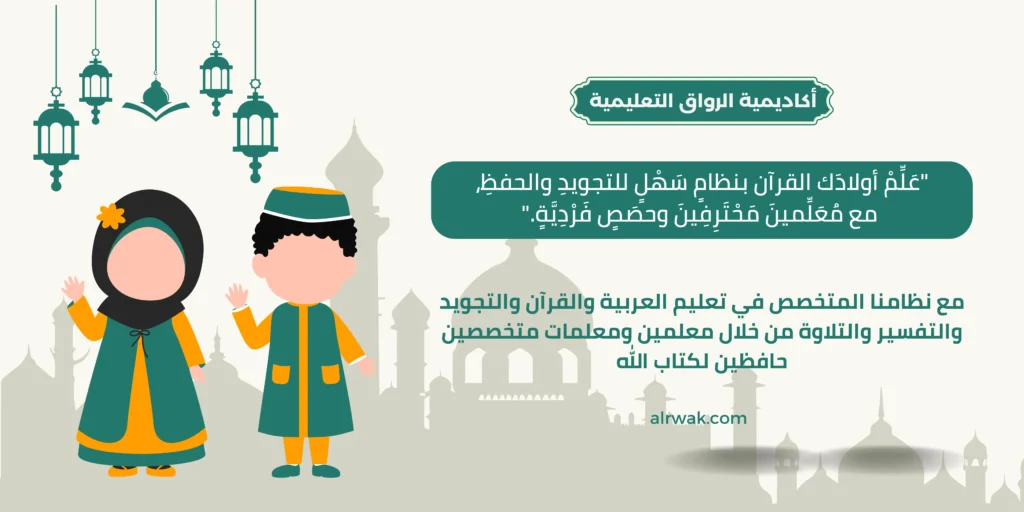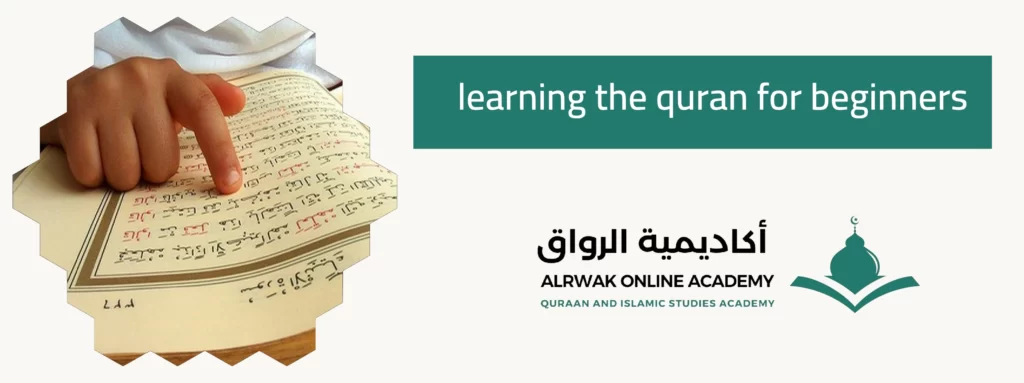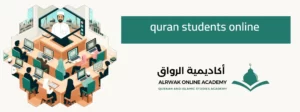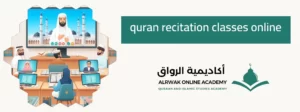learning the quran for beginners In the vast tapestry of religious scriptures, the Quran stands as a beacon of divine guidance and spiritual enlightenment for over a billion Muslims worldwide. Revered as the word of God revealed to the Prophet Muhammad (peace be upon him), its verses carry profound wisdom, timeless teachings, and a roadmap for righteous living. Yet, for many, delving into the depths of this sacred text can seem daunting, shrouded in mystery and complexity. However, embarking on the journey to learn the Quran, even as a beginner, is an endeavor filled with immense rewards, both spiritual and intellectual.
In this beginner’s guide, we embark on a voyage through the Quran, unraveling its significance, exploring its structure, and offering practical tips for those eager to delve into its profound depths. Whether you’re a newcomer to Islam or simply curious about this revered scripture, this guide aims to demystify the process of learning the Quran, empowering you to embark on a transformative journey of understanding, reflection, and spiritual growth.
From the historical context of its revelation to the intricacies of its language, from the fundamental principles it espouses to the practical methods of study, this guide serves as a roadmap for beginners, illuminating the path towards a deeper comprehension and appreciation of the Quranic message. So, let us embark together on this enlightening expedition, as we unravel the timeless wisdom encapsulated within the pages of the Quran, seeking solace, guidance, and inspiration in its divine verses.
learning the quran for beginners
learning the quran for beginners is a journey that holds profound significance and endless possibilities for spiritual growth and enlightenment. As one embarks on this sacred voyage, it’s essential to understand the foundational principles that underpin the study of the Quran. Firstly, it’s crucial to recognize the Quran’s central role as the holy scripture of Islam, believed by Muslims to be the literal word of God as revealed to the Prophet Muhammad (peace be upon him) over a period of approximately 23 years. This divine revelation serves as a comprehensive guide for all aspects of life, offering timeless wisdom, moral guidance, and spiritual nourishment to believers. Therefore, approaching the Quran with reverence, humility, and an open heart is paramount for anyone seeking to embark on the journey of learning and understanding its teachings.
At the heart of Quranic study lies the Arabic language, the medium through which the Quran was revealed. While translation allows for a basic understanding of the Quran’s message, delving into the original Arabic text unveils layers of depth, nuance, and intricate meanings that cannot be fully captured in any other language. For beginners, learning Arabic may seem like a daunting task, but it is a rewarding endeavor that opens doors to a deeper connection with the Quran. Starting with the basics of Arabic grammar, vocabulary, and pronunciation lays a solid foundation for comprehending the Quranic verses and eventually engaging in more advanced studies. Many resources, both traditional and modern, are available to aid beginners in learning Arabic, ranging from textbooks and online courses to local community classes and study groups. With dedication, patience, and consistent effort, even those with no prior knowledge of Arabic can gradually develop proficiency and confidence in reading and understanding the Quran in its original language.
Alongside mastering Arabic, understanding the context in which the Quran was revealed is essential for beginners. The Quranic revelation occurred in 7th-century Arabia, amidst a society marked by tribalism, idolatry, and social injustices. As such, many verses address specific historical events, cultural practices, and societal norms of that time, offering guidance and moral principles to navigate the challenges faced by the early Muslim community. Learning about the life of the Prophet Muhammad (peace be upon him), known as the Seerah, provides invaluable insight into the circumstances surrounding the revelation of various Quranic verses and the practical application of its teachings in everyday life. Additionally, studying the tafsir, or exegesis, of the Quran elucidates the meanings and interpretations of its verses, drawing on commentaries by scholars throughout Islamic history. By contextualizing the Quran within its historical and cultural framework, beginners gain a deeper appreciation for its relevance and timeless wisdom, transcending the barriers of time and place.
As beginners delve into the Quranic text, it’s essential to approach it with a mindset of reflection, contemplation, and sincerity. The Quran repeatedly encourages believers to ponder its verses, contemplate the signs of God’s creation, and seek guidance through introspection and prayer. Developing a daily habit of reciting and reflecting on even a few verses of the Quran fosters a profound spiritual connection and understanding of its message. Moreover, seeking guidance from knowledgeable mentors, scholars, and spiritual guides can provide invaluable support and insight on the journey of Quranic learning. Engaging in discussions, attending lectures, and participating in study circles allow beginners to deepen their understanding, clarify doubts, and foster a sense of community and camaraderie with fellow seekers of knowledge.
Furthermore, incorporating the teachings of the Quran into daily life is essential for beginners to truly internalize its message and effect positive change in their behavior and character. The Quran serves as a guidebook for ethical conduct, emphasizing virtues such as compassion, justice, humility, and integrity. By striving to embody these values in their interactions with others, beginners not only fulfill the teachings of the Quran but also contribute to building a more harmonious and just society. Practicing acts of charity, kindness, and forgiveness, as exemplified in the Quran, cultivates a spirit of empathy and goodwill towards all creation, fostering personal growth and spiritual fulfillment.
In conclusion, learning the quran for beginners is a transformative journey that encompasses linguistic, historical, spiritual, and ethical dimensions. With dedication, perseverance, and sincerity, beginners can unlock the profound wisdom and guidance encapsulated within its verses, drawing closer to the divine and enriching their lives with spiritual nourishment and moral guidance. As they embark on this sacred voyage, may beginners find solace, inspiration, and enlightenment in the timeless words of the Quran, guiding them on the path of righteousness, compassion, and inner peace.
more: online quran teaching website
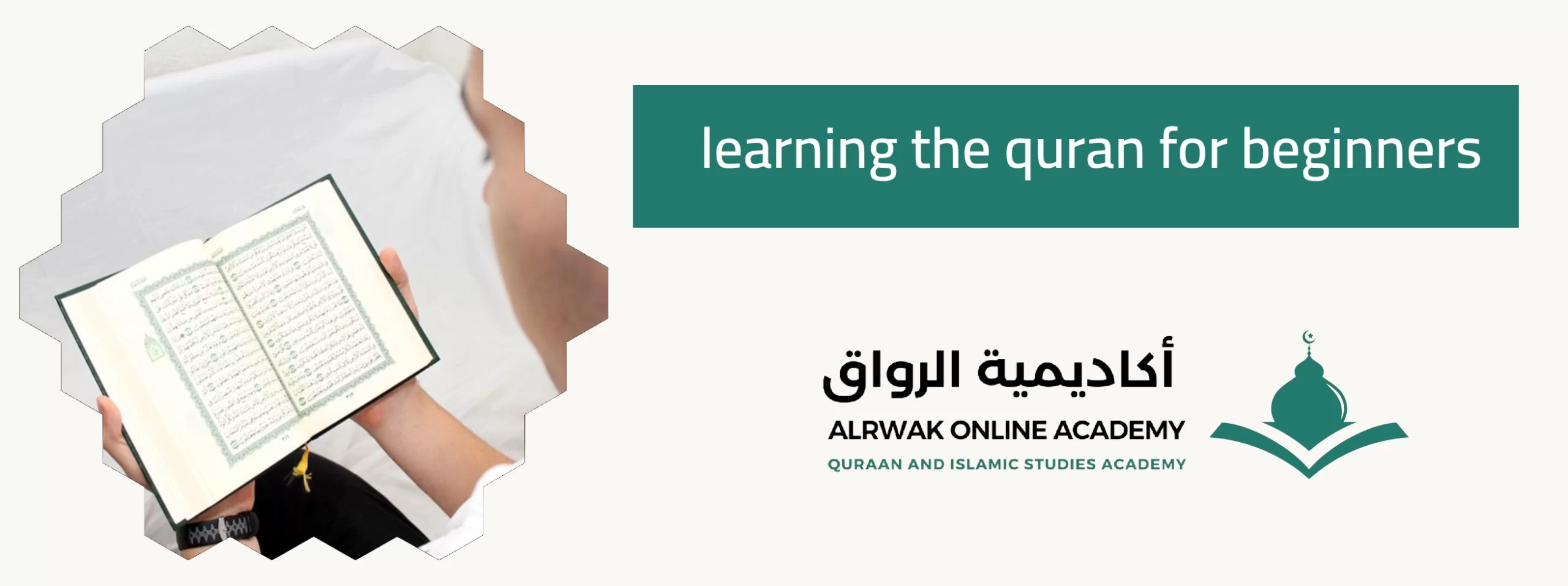
Easy Way To Learn Quran For Beginners
Learning the Quran as a beginner can seem like a daunting task, but with the right approach, it can be an enriching and rewarding experience. One easy way for beginners to start their journey of Quranic learning is by breaking down the process into manageable steps. Firstly, focusing on the basics of Arabic pronunciation and script lays a strong foundation for understanding the Quranic text. Utilizing resources such as online tutorials, mobile apps, and beginner-friendly textbooks can aid beginners in familiarizing themselves with the Arabic alphabet, vowels, and pronunciation rules. Practice sessions dedicated to reciting simple verses and common phrases help beginners gain confidence and fluency in reading the Quranic script.
In addition to mastering Arabic pronunciation, beginners can benefit from studying the meaning and context of key Quranic verses. Starting with shorter chapters, such as Surah Al-Fatiha (the Opening) and Surah Al-Ikhlas (the Sincerity), allows beginners to grasp fundamental concepts and themes within the Quran. Online platforms, study guides, and annotated translations provide accessible explanations and insights into the meanings of Quranic verses, making it easier for beginners to comprehend and reflect upon their significance. Engaging in regular reflection and contemplation on the verses studied helps beginners internalize the Quran’s teachings and apply them to their daily lives.
Another easy way for beginners to learn the Quran is by incorporating technology into their study routine. Mobile apps, audio recordings, and multimedia resources offer interactive and engaging learning experiences, catering to different learning styles and preferences. Features such as audio recitations by renowned Quranic reciters, interactive quizzes, and personalized study plans make Quranic learning accessible and enjoyable for beginners of all ages. Moreover, virtual study groups and online forums provide opportunities for beginners to connect with peers, seek guidance from experienced learners, and share their progress and insights on their Quranic journey.
Furthermore, setting realistic goals and establishing a consistent study routine is essential for beginners to stay motivated and disciplined in their Quranic learning. Breaking down the Quran into manageable sections and setting aside dedicated time each day for study and reflection helps beginners make steady progress and track their achievements. Setting specific, measurable, achievable, relevant, and time-bound (SMART) goals, such as memorizing a certain number of verses per week or completing a specific chapter within a set timeframe, provides beginners with a sense of direction and purpose in their Quranic studies.
Moreover, seeking guidance from knowledgeable mentors, teachers, or local community leaders can greatly benefit beginners in their Quranic learning journey. Enrolling in structured Quranic classes, attending workshops, or participating in study circles led by qualified instructors provides beginners with personalized guidance, feedback, and support tailored to their individual learning needs. Building a supportive learning community fosters accountability, camaraderie, and mutual encouragement among beginners, creating a conducive environment for collective growth and progress.
In conclusion, learning the Quran as a beginner is an attainable goal that can be achieved through dedication, perseverance, and the right approach. By focusing on the basics of Arabic pronunciation, studying the meanings and context of Quranic verses, incorporating technology into their study routine, setting realistic goals, and seeking guidance from knowledgeable mentors, beginners can embark on a fulfilling journey of Quranic learning. As they immerse themselves in the sacred words of the Quran, may beginners find inspiration, guidance, and spiritual fulfillment, enriching their lives and deepening their connection with the divine.
more: al quran academy
How To Learn Quran Fast
Learning the Quran quickly requires dedication, focus, and effective strategies tailored to individual learning styles and preferences. While mastering the Quran is a lifelong journey, there are several approaches that can expedite the learning process for those seeking to acquire proficiency in a shorter timeframe. Firstly, establishing a structured study routine is essential for maximizing productivity and consistency in Quranic learning. Setting aside dedicated time each day, whether it be in the morning, afternoon, or evening, ensures regular practice and progress. Breaking down the Quran into manageable sections, such as chapters or groups of verses, allows learners to focus on mastering one portion at a time, gradually building upon their knowledge and skills.
Additionally, utilizing technology and digital resources can enhance the efficiency and effectiveness of Quranic learning. Mobile apps, online platforms, and software programs offer interactive features, audiovisual aids, and personalized study plans tailored to individual learning needs. Utilizing features such as audio recitations by renowned Quranic reciters, interactive quizzes, and progress tracking tools facilitates active engagement and retention of Quranic knowledge. Moreover, virtual study groups, forums, and social media communities provide opportunities for learners to connect with peers, share resources, and seek guidance from experienced mentors and teachers, fostering a collaborative and supportive learning environment.
Furthermore, employing mnemonic devices, visualization techniques, and memory aids can aid in memorization and retention of Quranic verses. Breaking down complex verses into smaller segments, associating them with familiar images or concepts, and repeating them regularly help reinforce learning and internalize the Quranic text. Additionally, utilizing mnemonic techniques such as acronyms, rhymes, and word associations enhances recall and facilitates memorization of Quranic verses. Moreover, practicing recitation with correct pronunciation, intonation, and rhythm enhances fluency and confidence in reading and reciting the Quran.
Another effective strategy for learning the Quran quickly is through immersion in the Arabic language and Islamic culture. Surrounding oneself with Arabic-speaking communities, attending Quranic recitation sessions, and participating in Islamic events and gatherings provide opportunities for exposure to the language and culture of the Quran. Additionally, listening to Quranic recitations by proficient reciters, watching educational videos, and reading Quranic texts in Arabic script immerse learners in the linguistic and auditory aspects of Quranic learning, enhancing comprehension and fluency.
Furthermore, seeking guidance from knowledgeable mentors, teachers, or scholars can greatly accelerate Quranic learning. Enrolling in intensive Quranic courses, attending workshops, or participating in one-on-one tutoring sessions with qualified instructors provides personalized guidance, feedback, and support tailored to individual learning needs. Additionally, seeking advice from experienced learners, consulting reputable sources, and engaging in critical analysis and discussion of Quranic texts deepen understanding and enhance comprehension of the Quran.
In conclusion, learning the Quran quickly is achievable through a combination of structured study routines, utilizing technology and digital resources, employing mnemonic devices and memory aids, immersing in the Arabic language and Islamic culture, and seeking guidance from knowledgeable mentors and teachers. By adopting effective strategies, staying committed to regular practice, and seeking support from the Quranic community, learners can expedite their journey of Quranic learning and deepen their connection with the divine. As they strive to master the sacred text of the Quran, may they find inspiration, guidance, and spiritual fulfillment, enriching their lives and strengthening their faith.

